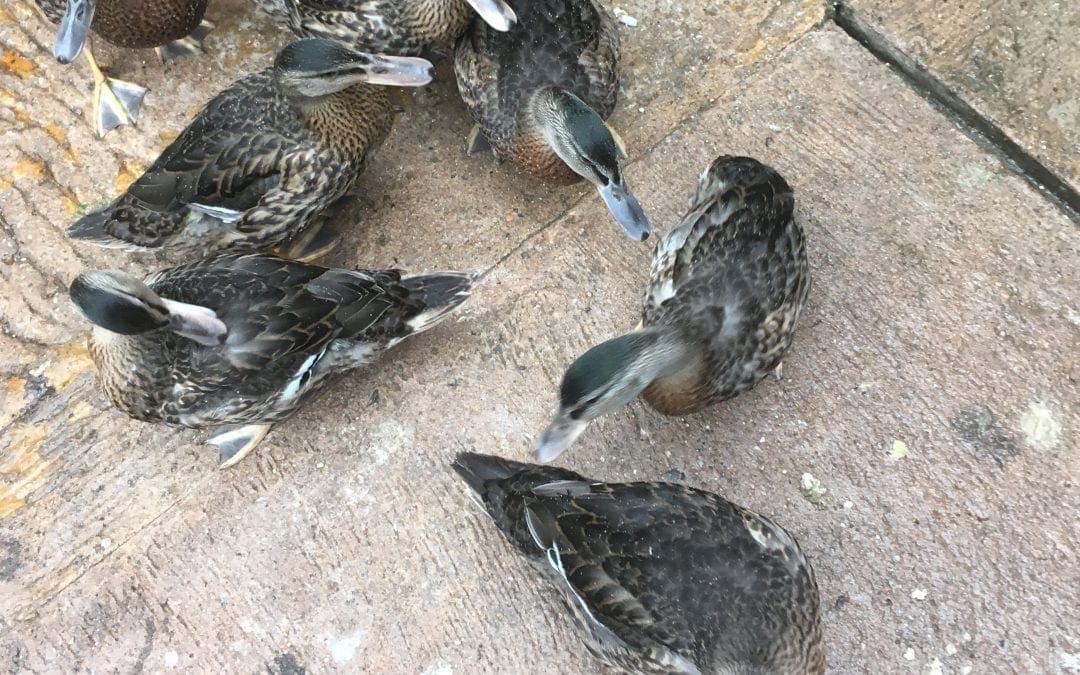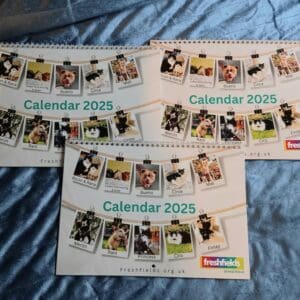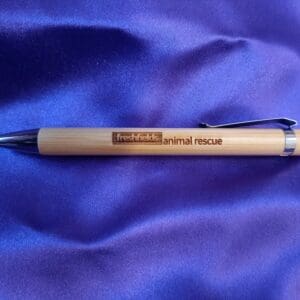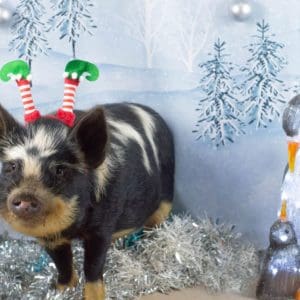After over-wintering a hundred plus hedgehogs, we are delighted to see seventy-five successfully returned to the wild. Many of the remaining hedgehogs are ready to go, but some still have health issues, and sadly several have been severely injured by strimmers.
This hedgehog’s wound was inflicted by a strimmer. He lost part of his nose and had a major cut on his face. Happily, he is making a wonderful recovery.
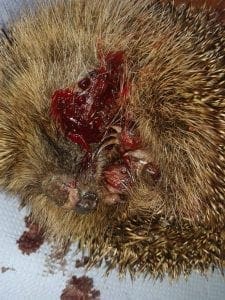
Please, if you use a strimmer, always check the long grass first.
Each year we always seem to have a run on certain types of chicks, at the moment it’s mainly magpies and woodpigeons. There are others, of course, among our current favourites are our little goldfinch and chaffinch. When very young chicks come in the staff become parent birds and take the chicks home each night as they can’t go too long without a feed. It’s very rewarding but also pretty exhausting.
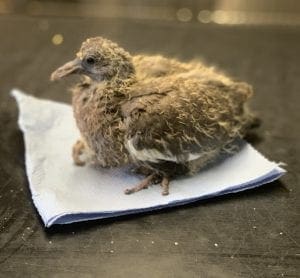
It’s perfectly normal to see a fledgling on the ground at this time of the year. Their parents will be around and will feed them. It takes a few weeks for the juvenile birds to grow their flight feathers and learn to fly. If you are concerned about a chicks safety, place it in a bush as close to its original position as possible. Please keep pets indoors if fledglings are on the ground. They won’t be there long. If you see a nestling, a chick with very few, or no feathers, look around for the nest. It’s perfectly fine to put a nestling back, their parents won’t reject it if you touch it. Only intervene if a chick is injured or its nest can’t be located.
Talking of birds, most birds are killed as a result of flying into windows. Millions die each year. Safety stickers that prevent this can be acquired from pet shops or the RSPB.
There has also been a run on ducklings, currently, there are three groups, all the same age adding up to thirty-six. Given we only have one water bird aviary to prepare these birds for release, two groups will have to wait their turn, as a scrap would break out if the three groups were put together. Ducklings are fascinating birds, they’re noisy, lively, bouncy and incredibly messy. As fast as you clean their quarters, they trash them again, which means they have to be cleaned out several times a day.
Here’s the first group of ducklings preparing for release in our water aviary.
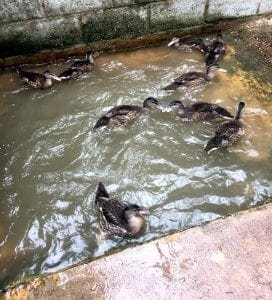
What we need this week
At the moment we are really short of towels, long shredded paper, and cat biscuits, no fish flavours though, as hedgehogs won’t eat anything fishy. A huge thank you to anyone who can help.
Out and about this May
This is the time of year when greenfly and blackfly arrive with a vengeance in our gardens. Instead of using insecticides, the most wildlife-friendly way of dealing with them is to encourage ladybirds into the garden.
It’s easy to attract ladybirds if you provide them with food, aphids, etc and pollen. They enjoy feeding on chives, fennel, marigold, dill, feverfew, and angelica, so it’s a win-win, we get the fresh herbs and lose these pests at the same time.
May is also the month when hedgehogs begin mating; their first litter will be born in June so it’s always worth checking for nesting mothers before digging up established shrubs.
It’s also a good time to sow wildflower seeds for our native pollinators, that are steadily declining. You can get many online for free.
Check out these sites.
www.latestfreestuff.co.uk/free-garden-stuff
www.justbeedrinks.co.uk/seeds
Dog roses are in full bloom at the moment, and as well as being beautiful they provide an important source of nectar for insects, then later in the year the bright red hips provide a valuable source of food for a variety of birds and mammals, and they make a wonderful rose-hip syrup. How’s that for value?
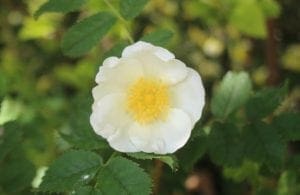
Did you know…
That silver birch trees remove pollutants from the air?
and that the white spit appearing on plants is produced by the spittle-bug? The foam contains the juvenile which then feeds on the plant. It may look a little unsightly but doesn’t do the plant any lasting damage.
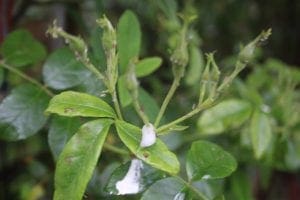
And Finally…
Always remember to seek advice from the wildlife staff before bringing an animal to the rescue. If an animal is injured, please take it to a vet as we don’t always have a vet on site. Most vets treat wildlife for free.

